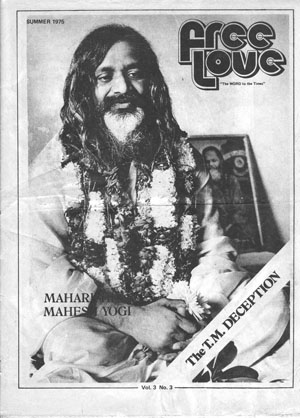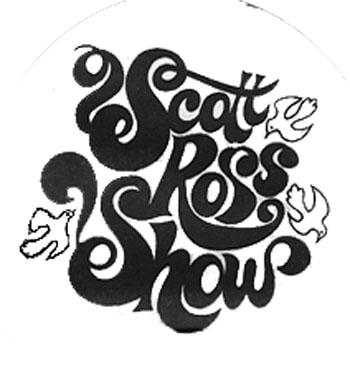 Playing from 8:30 am to 11:30 am on Sunday mornings on WOW, 590 AM from Omaha, I was favorably impressed by the quality of the program. It was professionally produced, and it broadened my experience with Jesus music. And the host, Scott Ross, did more than just spin records. He talked about the records, aiming for an audience at both ends of the spectrum: Those who knew Jesus personally as well as those who did not know Him and who had just tuned in to listen to “rock music”.
Playing from 8:30 am to 11:30 am on Sunday mornings on WOW, 590 AM from Omaha, I was favorably impressed by the quality of the program. It was professionally produced, and it broadened my experience with Jesus music. And the host, Scott Ross, did more than just spin records. He talked about the records, aiming for an audience at both ends of the spectrum: Those who knew Jesus personally as well as those who did not know Him and who had just tuned in to listen to “rock music”.
In 1976, about a year after I began to listen to the show, Scott Ross’ life story was published in the book “Scott Free”. What follows is a summarization of the story told in that book:
Early Years
Born in Scotland, Charles Edward Ross came to America in early 1949 with his family, when he was nine years old. Because of his accent, he was called “Scott” by the other students at school. His family moved around a bit, until settling down in Hagerstown, Maryland. At the age of fifteen he first was exposed to the world of radio broadcasting through a visit to a local station. It fascinated him, and two of the disk jockeys took a liking to him and began to include him in the work they did. He was exposed to jazz and the new rock and roll music being played, and by the age of seventeen the station hired him to edit the news, and help pull records to play.
His father was a preacher, and led a small congregation in their home. Although Scott had accepted Jesus as his savior when he was quite young, he had become embittered by the treatment he received from other students at school. This intensified when he observed the double standards that he saw in the lives of people in town (including those who attended his father’s church) who professed to be Christians. As his involvement in radio increased, his participation in church decreased. Scott’s father did not approve of the work he was doing, but told him that he and his mother were continuing to pray for him. And when his father became ill during Scott’s senior year of high school, he told Scott on his death bed that he believed that God had a purpose for him in his radio work.
Radio Career
Scott left his home in Maryland and went to New York, where he walked into WINS, the most popular rock and roll station in the city, just after the station had fired its program director. They hired Scott on a trial basis. He did well, and moved into a life of importance in the music business. Record companies wined and dined him, to convince him to play their
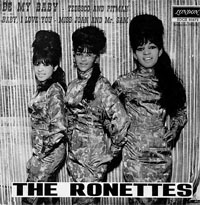
new releases on WINS. When the up-and-coming girl group, The Ronettes (who had their signature hit “Be My Baby” in 1963) came to the station, Nedra Tally caught the eye of Scott. They began to date, and the career of the Ronettes was big enough that when the Beatles arrived on their first trip to the United States, one of the first things they asked was “Where are the Ronettes?” A visit between the groups was arranged, and through that visit, Scott Ross had an opportunity to tape the first Beatles interview in this country. Later, Scott was the emcees at their famous concert at Shea Stadium.
As his career in radio continued to climb, Scott became acquainted with the famous of the rock scene – the Rolling Stones, Bob Dylan, and many more. He also became more and more exposed to the world of sex, alcohol, and drugs. He continued to look for higher highs, and eventually it all caved in on him. A police raid on his apartment resulted in an arrest and charges of drug use and possession. The result was that his career in radio was over, and he was only 26 years old.
 Despite this turn of events, he did not give up the lifestyle of drugs. He nearly died while high on LSD; he was pulled back from the edge of a balcony in New York where he was prepared to jump to the ground, twenty-nine stories below, and bounce all over a city that looked to him like it was made out of foam rubber. He became paranoid, and hallucinated even when he had not taken any LSD.
Despite this turn of events, he did not give up the lifestyle of drugs. He nearly died while high on LSD; he was pulled back from the edge of a balcony in New York where he was prepared to jump to the ground, twenty-nine stories below, and bounce all over a city that looked to him like it was made out of foam rubber. He became paranoid, and hallucinated even when he had not taken any LSD.
Then came a letter from the draft board. He was to return to his home in Hagerstown, Maryland to report for a physical. Everything in his life was falling apart. In his despair, he turned to the one person in his life who seemed to have everything in control: Nedra Tally. She had just returned from the Ronettes tour of the United States with the Beatles. She told him that she loved him, and would go to his home with him.
Finding New Life
When Scott and Nedra arrived at home, they were invited to go to the Pentacostal church where Scott’s mother attended. Although Scott went with the intent of making fun of it, Nedra was touched intensely by the service. She pulled him forward, and before he knew what was happening, they were kneeling together and asked Jesus into their lives. Scott could not explain the emotions that were flooding him. After they left, he tried to light up some marijuana and immediately found it was making him intensely ill, something that had never been a problem before.
He found that his draft board was not interested in him after hearing that he had been arrested on drug charges. His mother gave him his father’s Bible, and he and Nedra returned to New York. He started reading the Bible, and his father’s notes on the pages. He found a church to attend that accepted him in his hippie-like attire, and Nedra began to attend with him. The Ronettes had decided to break up and go their separate ways, so there would be no more touring to take her away. They got married in this little church. Nedra put all of her money from her career in the Ronettes in a trust fund in her mother’s name, and Scot began to work at a bookstore, because no one in radio would hire him, and even if they did, he was worried about again being exposed to the lifestyle that had almost destroyed him.
While struggling through their early months together as husband and wife, Scott worked at the church at home where he had regained his faith. During this time, he attended a Full Gospel Business Men’s Fellowship meeting where Pat Robertson was the speaker. Robertson’s Christian Broadcasting Network (CBN) spoke about his television and radio station. This dovetailed with Scott’s growing desire to speak to people in his generation who were still enmeshed in drugs and despair, and did not know how to get out of it. He spoke with Robertson, and together they planned a talk and music show that was intended to reach out to this group of people who were often simply not accepted in most churches.
Christian Radio
As he started his program, he had no problem coming up with material to talk about on the air and on the telephone with callers, discussing the issues of life and death and relationships. He did his best to offer his callers the hope in Christ that he himself had discovered. And the program was quite popular.
What really excited Scott was the availability in 1969 of a chain of FM radio stations for sale in upstate New York, stations whose signals overlapped in such a way that programming played over them could be heard from Buffalo to Albany. CBN managed to have the stations donated to the ministry, and asked Scott to manage them.
Scott and Nedra moved up to Ithaca, New York, and began to work to make the stations ready to start a Christian programming format. Scott planned to make it different from the typical religious format on radio stations, a mix of music to attract the listeners he wanted, and a talk program to allow people to discuss their problems and make it possible to point to the solution that would bring them to know Jesus.
At this point in time, finding music to play was very difficult. This outlet of the Christian Broadcasting Network depended on listener donations to survive. But many of the Christian listeners were not satisfied with the music that they could find to play. If it was too much like rock and roll, they did not like it. If it was too much like typical church music, the very people Scott wanted to reach would not listen. It was a dilemma that he had to carefully balance.
A Barn And A New Radio Show
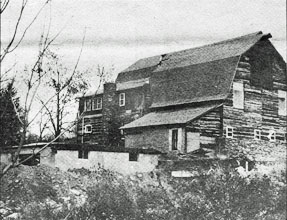
Meanwhile, Scott and Nedra were presented with an unexpected present. He received a call at the station from a woman who had a farm near Freeville, New York. She had suffered from crippling arthritis, and when she began to listen to the Christian programming on the CBN stations that Scott Ross was managing, God touched her body and totally healed the arthritis that had limited her for so long. This also led to praying along with Scott on the radio, and she found salvation as well. She had this strong impression from the Lord that she should offer the use of her barn to that man whom she had listened to on that radio station.
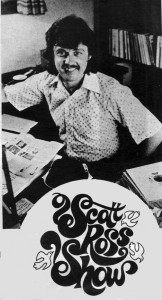
As Scott talked about the barn on the radio to his audience, he began to get volunteers to come out and help clean it out. And as the cleaning process began, he began to have a vision of a place to gather people together to listen to contemporary Christian music performed live. The new organization became a ministry, and the barn was named “Love Inn”.
As Love Inn began to take shape in appearance and function, another dream also began to come into focus. As much as Scott enjoyed doing his outreach to those who did not know Jesus over the airwaves of the CBN Northeast radio network, he continued to have conflicts with listeners about the content of the programming. He wanted to have a program that would go out over non-religious stations, a program that would speak to the people who needed to hear the message, without the restrictions that he felt were binding him.
This vision was also in the mind of Pat Robertson, head of CBN. It was discussed with Scott, and Pat wanted it to be called “The Scott Ross Show”. It was to be provided free-of-charge to commercial radio stations, and would play the kind of music that Scott had been trying to get played on the CBN stations. This also fit with Scott’s vision of reaching out to the people who were not already Christians. To help him out in this endeavor, Robertson offered the services of Larry Black, a marketing and production man who did work for the CBN-Northeast radio stations.

By 1970, The Scott Ross Show was on the air on sixteen commercial radio stations, and mail from listeners was continually increasing. He recorded the three hour show at the CBN studios, and sent it out to the stations who played it. He depended on donations to support the show. By 1973, the show was going out to over eighty stations.
To offer further resources for the listeners beyond the show, Love Inn also started a newspaper called Free Love, sent free of charge to listeners who requested it. In 1976, the paper dealt with issues such as the deception of transcendental meditation and the Unification Church and its leader, Reverend Moon, as well as topics involving Christian growth. The articles were rounded out with interviews with musicians whose music was played on the radio program. Also, through the newspaper, the ministry also offered “Teach Inn”, teaching cassettes on various topics. For those readers who did not have a Christian bookstore or record store in their vicinity, the “Love Inn Book Shoppe” made music available as LPs, cassettes, and 8-tracks.
Eventually, Love Inn’s barn was host to production for The Scott Ross Show, a theatre for drama, dance, and music, a dormitory for full-time workers, and a school for the children of the members of the community.
Love Inn also started a recording studio called New Song Productions, for the purpose of producing records. Artists Phil Keaggy and Ted Sandquist had become part of the Love Inn community, and New Song became an outlet for performances of their music. ((Ross, Scott. Scott Free, Old Tappan, New Jersey, Chosen Books, 1976))
Airchecks
This now brings me back to my own personal experience with The Scott Ross Show. For all of high school, I had been recording music off the radio onto cassette tapes. By the time I arrived at college I had a collection of music that was just what I liked, and which I could play at any time I wanted. After I encountered Christian music on this program that played on Sunday mornings on my Omaha rock station, I decided that I had to start a new series of tapes. These would be specifically dedicated to taping Jesus music, so it also would be available to hear at any time I wanted.
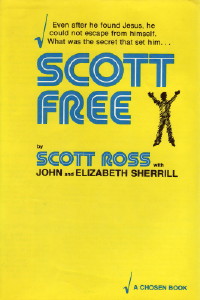
From the spring of 1976, here are the airchecks of The Scott Ross Show that I have on my tapes. It includes several of the show’s jingles, and Scott’s intros and outros for songs that were being released in 1976. The songs excerpted here include those by the 2nd Chapter of Acts, Mustard Seed Faith, Liberation Sweet, Randy Stonehill, and Larry Norman. At the end of the aircheck is a commercial offering free copies of Good News For Modern Man, a translation of the Bible in modern language that were being offered by the ministry.
Here is an advertisement, read by Larry Black, for the book Scott Free.
By mid 1976, after nearly seven years of doing the show, Scott Ross was appearing less and less often on his own show. For a period of time, an announcer named John Tomzack filled in for Scott for the show. Tomzack later became program director for CBN radio in Norfolk, Virginia. Here is an aircheck of some of his work on the show:
By the beginning of 1977, Scott’s other responsibilities made it impossible to be host of his own show any longer. Another voice began to take over the microphone “regular” guest host.
Before I continue with that story, I need to take a break to visit a different part of the country.
Next – KYMS
